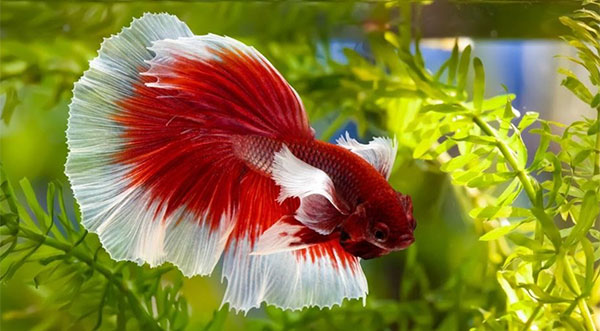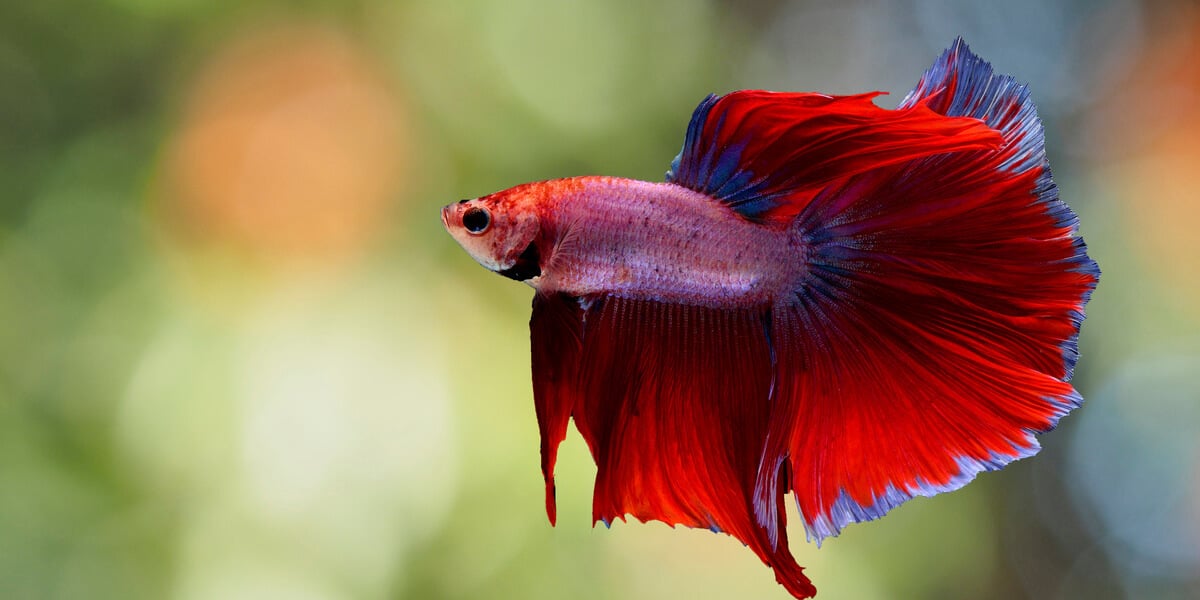
If you’re a betta fish owner, you know that they have pretty unique feeding habits. Unlike some other fish species, bettas don’t have a stomach, so they can’t eat big meals all at once. Instead, they need to be fed small amounts of food throughout the day. But what happens if you forget to feed your betta or have to leave them alone for a few days? How long can they actually go without food?
Betta Fish Feeding Habits
Before we answer that question, let’s take a closer look at betta fish feeding habits. In their natural habitat, bettas are carnivorous and eat a variety of small insects and larvae. In captivity, they’re typically fed a diet of pellets or flakes, which are specifically formulated for their nutritional needs.

Betta fish are also known for being picky eaters. They may not eat if the water temperature is too cold or if they don’t like the type of food being offered. They also have a tendency to overeat, which can lead to health problems like bloating and constipation.
To prevent overeating, bettas should be fed small amounts of food 2-3 times per day. It’s important not to overfeed them, as this can cause digestive issues and impact their overall health. It’s also important to remove any uneaten food from the tank after feeding, as this can lead to water quality issues.
How Long Can Betta Fish Go Without Food?
So, back to the question at hand – how long can betta fish go without food? The answer is actually quite surprising. Betta fish are able to survive for up to two weeks without food, thanks to their unique physiology and evolutionary adaptations.
As mentioned earlier, bettas don’t have a stomach, which means they digest food differently than other animals. Instead, food is processed through their intestines and absorbed quickly into their bloodstream. This allows them to go longer periods without food, as their bodies are able to break down stored fats and proteins for energy.
However, just because bettas can survive for two weeks without food doesn’t mean they should. It’s important to ensure that your fish is fed regularly to maintain their health and well-being.
Factors That Affect Betta Fish’s Ability to Survive Without Food
While betta fish can survive for up to two weeks without food, there are several factors that can impact their ability to do so.
One of the biggest factors is the betta’s overall health. A healthy betta with a strong immune system will be better equipped to survive without food than a sick or weakened fish.
Water temperature and quality also play a role in a betta’s ability to survive without food. If the water is too cold or dirty, it can impact their metabolism and make it harder for them to digest stored nutrients.
Lastly, the age of the betta can impact their ability to go without food. Younger fish have a faster metabolism and may not be able to go as long without food as older fish.
Signs That Your Betta Fish is Hungry
While bettas can survive without food for a while, it’s still important to monitor their feeding habits and ensure they’re getting enough sustenance. Here are a few signs that your betta fish is hungry:
- They’re swimming frantically around the tank, searching for food
- They’re begging for food at the surface of the water
- They’re lethargic or not as active as usual
- They’re losing weight or looking emaciated
If you notice any of these signs, it’s important to feed your betta fish right away.
Risks of Overfeeding Betta Fish
While it may be tempting to feed your betta fish extra food, overfeeding can cause serious health problems. Betta fish are prone to overeating, which can lead to bloating, constipation, and swim bladder disease.
Swim bladder disease is a condition where the betta fish is unable to regulate its buoyancy, causing it to float uncontrollably or sink to the bottom of the tank. This can be a life-threatening condition if left untreated.
To prevent overfeeding, it’s important to feed your betta small amounts of food throughout the day. If you’re going to be away for a few days, consider using an automatic feeder to ensure your fish is getting the right amount of food.
Best Practices for Feeding Betta Fish
To maintain the health and well-being of your betta fish, it’s important to follow these best practices for feeding:
- Feed small amounts of food 2-3 times per day
- Use high-quality pellets or flakes specifically formulated for betta fish
- Remove any uneaten food from the tank after feeding
- Monitor your betta’s feeding habits and adjust the amount of food as needed
- Consider using an automatic feeder if you’ll be away for an extended period of time
By following these best practices, you can ensure that your betta fish is getting the right amount of food and staying healthy.
Alternative Food Sources for Betta Fish
While pellets and flakes are the most common food sources for betta fish, there are alternative options available. Some betta owners choose to feed their fish live or frozen foods, such as bloodworms or brine shrimp.
These alternative food sources can provide additional nutrients and variety to your betta’s diet. However, it’s important to research and understand the specific dietary needs of your betta before introducing any new foods.
Conclusion and Key Takeaways
So, how long can betta fish go without food? While they can survive for up to two weeks without sustenance, it’s important to ensure that they’re fed regularly to maintain their health and well-being.
Factors like water temperature and quality, as well as the betta’s overall health and age, can impact their ability to survive without food. Signs that your betta may be hungry include frantic swimming, lethargy, and weight loss.
To prevent overfeeding, feed small amounts of food 2-3 times per day and remove any uneaten food from the tank after feeding. Consider alternative food sources like live or frozen foods, but be sure to research and understand the specific dietary needs of your betta before introducing new foods.
By following these best practices and monitoring your betta’s feeding habits, you can ensure that your little finned friend stays happy and healthy for years to come.


